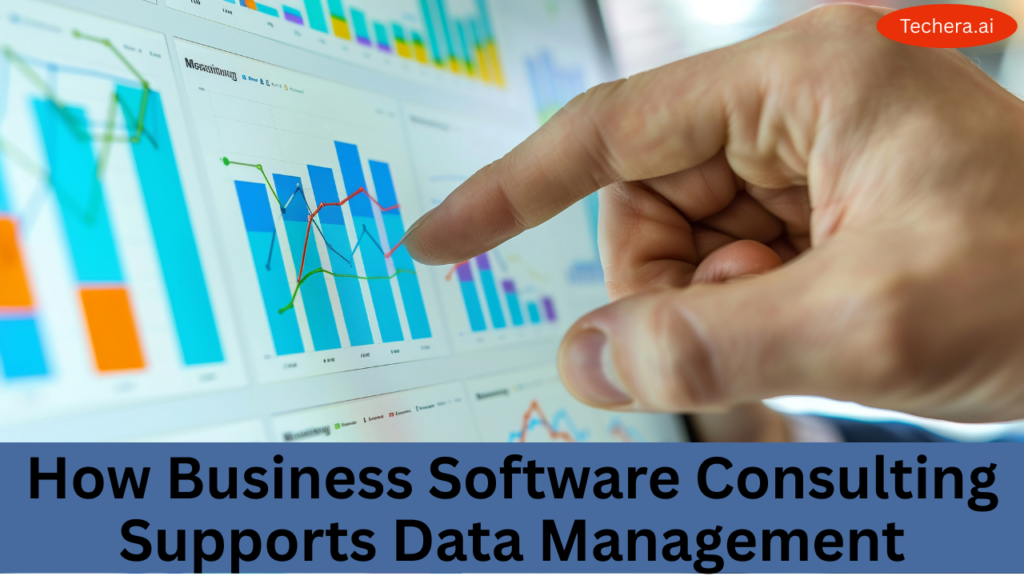
Discover how Business Software Consulting can revolutionize your company’s data management. From streamlining data workflows to improving accuracy and security, this blog explores how expert consultants help businesses make smarter, data-driven decisions. Unlock the full potential of your data with the right software strategy.
Introduction
Let’s face it — in today’s business world, data is gold. Whether it’s customer information, financial records, or supply chain logistics, how you manage your data can make or break your business. But handling that treasure trove efficiently? That’s where business software consulting steps in. This article will show you how these experts can transform your messy data into a well-oiled machine of productivity and profitability.
What is Business Software Consulting?
Business software consulting involves expert advice and hands-on support to help companies choose, implement, and optimize software tools tailored to their specific needs. Whether you’re a startup or an enterprise, consultants evaluate your goals, processes, and current tech stack to recommend solutions that actually work.
Types of Services Provided
- Software selection and integration
- Data migration and system upgrades
- Custom software development
- Ongoing support and training
Who Needs It?
Everyone. Whether you’re drowning in spreadsheets or navigating complex enterprise systems, a consultant can simplify and enhance your tech landscape.
The Importance of Data Management
What is Data Management?
Data management is the process of collecting, storing, organizing, and using data effectively, securely, and cost-efficiently.
Why is It Critical for Business Success?
Without proper data management, businesses face:
- Lost time searching for information
- Poor decision-making due to outdated data
- Increased risk of data breaches
- Compliance headaches
Also Read : What Business Software Consulting Can Do for Your Customer Experience
Common Challenges
- Data silos
- Inconsistent data entry
- Legacy systems
- Lack of automation
How Business Software Consulting Supports Data Management

Consultants bring a structured approach to your chaotic data systems. They help by customizing and implementing tools that:
- Unify scattered data sources
- Automate manual entry
- Provide real-time insights
Strategic Planning and Analysis
Consultants begin by assessing your current systems and identifying bottlenecks. They don’t just patch problems — they plan for scalable solutions aligned with your business goals.
Implementing Robust Data Infrastructure
Whether you need cloud-based systems or local servers, consultants help choose the best-fit infrastructure. They consider:
- Your data volume
- Security needs
- Budget constraints
Cloud vs On-Premise
Cloud offers flexibility and lower upfront costs, while on-premise gives you more control. A consultant helps you weigh the pros and cons.
Automation and Process Optimization
Imagine reducing data entry time by 60%. That’s the power of automation. Consultants use software to eliminate repetitive tasks and improve workflow accuracy.
Data Security and Compliance
With data breaches on the rise, security isn’t optional. Business software consultants help you:
- Encrypt sensitive data
- Set up role-based access
- Ensure compliance with GDPR, HIPAA, and more
Real-Time Data Access and Reporting
Wouldn’t it be great to see your sales performance or inventory levels instantly? Consultants implement dashboards and reporting tools so decision-makers can act fast — with confidence.
Cost-Effective Solutions
Hiring a consultant might seem pricey at first, but consider the long-term benefits:
- Avoiding bad software investments
- Reducing operational costs
- Boosting team productivity
The ROI is worth it.
Case Studies and Real-World Examples
Example 1: Small Business Makeover
A local retail company worked with a consultant to integrate their sales, inventory, and customer data. Result? 40% increase in order accuracy and a 25% boost in customer satisfaction.
Example 2: Enterprise-Level Optimization
A large manufacturing firm had data scattered across 5 platforms. Consultants unified their systems, implemented real-time dashboards, and reduced reporting time by 70%.
Common Misconceptions About Business Software Consulting
“It’s Only for Big Companies”
False. Even small businesses benefit — sometimes even more because they can adapt faster.
“It’s Too Expensive”
Not true when you consider the time and money saved in the long run.
“All Solutions Are the Same”
Nope. Consultants tailor solutions to your unique business needs.
How to Choose the Right Consultant
Qualities to Look For
- Industry experience
- Proven track record
- Transparent communication
- Tech-savviness
Questions to Ask
- What’s your approach to data security?
- Can you provide client success stories?
- How do you handle post-implementation support?
Future Trends in Business Software Consulting

AI and Machine Learning Integration
Expect smarter systems that learn from your data and suggest improvements.
Predictive Data Management
Why react when you can predict? Consultants will help you forecast trends and make proactive decisions.
Conclusion
Data is the backbone of your business — but only if you manage it right. Business software consulting isn’t just about tech; it’s about transforming the way your business operates. From improving efficiency to securing sensitive info, consultants bring a level of expertise that turns your data into a strategic asset.
Frequently Asked Question
Q. What industries benefit most from business software consulting?
A. Any industry that relies on data — healthcare, retail, finance, manufacturing, and more — can see major gains.
Q. How long does a consulting project usually take?
A. It depends on the scope. Small projects might take weeks, while enterprise-level implementations could last months.
Q. Can consultants work with existing software systems?
A. Absolutely. Many specialize in optimizing or integrating current tools rather than replacing them.
Q. Is business software consulting only for tech-savvy companies?
A. Not at all. In fact, companies without a strong tech background often benefit the most.
Q. How do I measure the success of a consulting engagement?
A. Track KPIs like reduced errors, faster reporting, increased productivity, and higher ROI on tech investments.

